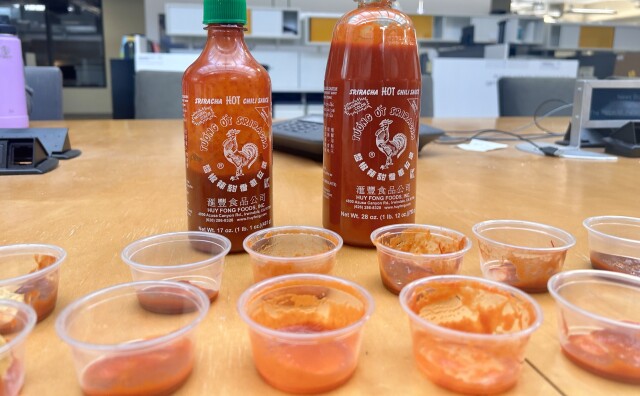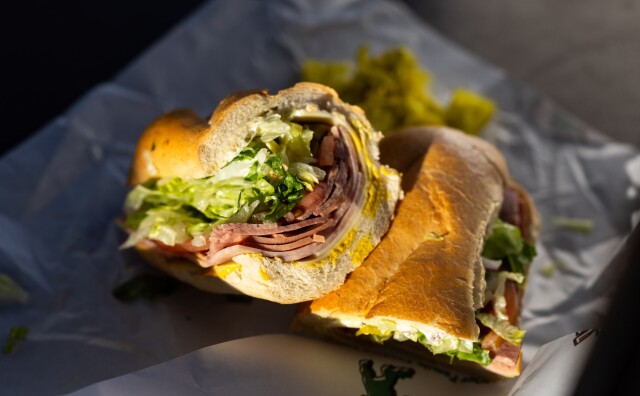Workers At Genwa Korean BBQ In LA Just Scored A Union Contract, In An Industry First

Employees at Genwa Korean BBQ have achieved a historic first.
The workers have ratified their first contract under a newly established union, California Retail & Restaurant Workers Union, making it the first privately owned and operated Korean restaurant in the United States to successfully organize.
Genwa Korean BBQ has three locations across Los Angeles County, in downtown, Mid-Wilshire, and Beverly Hills. Employees at each restaurant are covered under the contract, which lasts for three years. The restaurants are privately owned by Jin Won Kwon and Jay B. Kwon.
José Roberto Hernández is the president of the union and director of organizing for Koreatown Immigrant Workers Alliance (KIWA). He said the employees’ work is “groundbreaking.”
-
At magnitude 7.2, buildings collapsed
-
Now spinning in front of Santa Monica apartments
-
Advocates seek end to new LAUSD location policy
“It’s the joining together [of] the Latino workforce and the Korean workforce that sustains these industries,” Hernández said.
While the agreement covers workplaces outside of Koreatown, it could impact the future of employees in the area. There are more than 550 restaurants in Koreatown within 2.7 square miles, Hernández said. And he wants to expand union efforts to other businesses.
Genwa workers began organizing with KIWA in 2017 amid allegations of wage theft and unfair treatment. Three years later, the California Labor Commissioner’s Office slapped Genwa with a $2 million citation for wage theft and labor law violations “affecting 325 servers, dishwashers and cooks.” Hernández said giving employees a voice at work was “mutually beneficial” to prevent future violations.
“It is really hard, very hard in the United States, to set up a union,” Hernández said. “This is a brand new union from scratch. All the hoops and loops that we have to jump, no wonder workers do not organize more unions in this country.”
The union at Genwa was recognized in July 2021. The bargaining unit spent months negotiating the landmark contract, which he said was ratified by 98% of eligible workers.
In a statement to LAist, owner Jay Kwon said that while they disagree with the allegations about staff treatment at Genwa, they don’t want to “dwell on the past.”
“Instead, we look forward to working together with the California Restaurant and Retail Workers Union with mutual respect and dignity, to continue to foster quality jobs and an excellent standard of service and food,” Kwon said. “Our objective is to grow together with our employees and ensure that both Genwa jobs and service are world class. I hope it becomes a model for others in the industry.”
The agreement establishes many new benefits for staff. The contract requires the rehiring of Genwa employees who were on staff as of February 2020. It creates seniority rights, pay increases near $21 an hour, a retirement plan, a stipend and reimbursement for healthcare, and a “fair tip distribution system,” among other benefits.
Hernández said the union has a “productive relationship” with the owners. He said he hopes Genwa workers will be an example of how others can gain improved working conditions in the restaurant industry, noting that the effort to “achieve justice” was spearheaded by Genwa staff.
“It is only possible by the work done [by] migrants — Latino migrants and Korean migrants,” he said.
-
After people began complaining online that Sriracha they'd bought recently didn't taste like the old stuff, we set out to find the answer. It didn't go well.
-
From tortas to tuna melts, all sandwiches tell a unique story as they celebrate Los Angeles' diverse tapestry of flavors with each bite.
-
The company behind Sriracha told us production has resumed.
-
Dustin Bartz has figured out a way to sell a $6 smashburger — and still make a tidy profit. He enjoys trolling competitors who charge more.
-
Two amateur bakers take on a beloved, almost sacrosanct school treasure.
-
For Jeff Alulis, the Burger Quest became “something bigger” than him.









